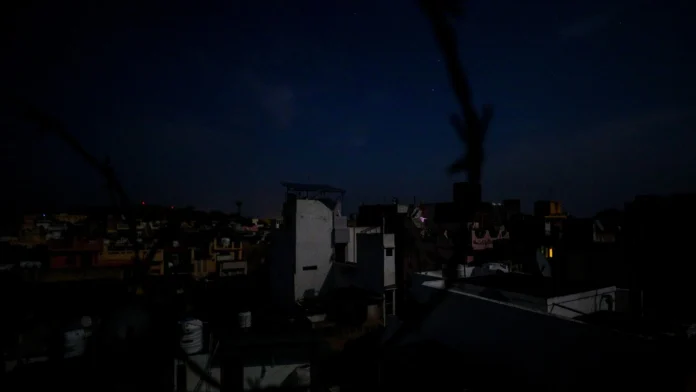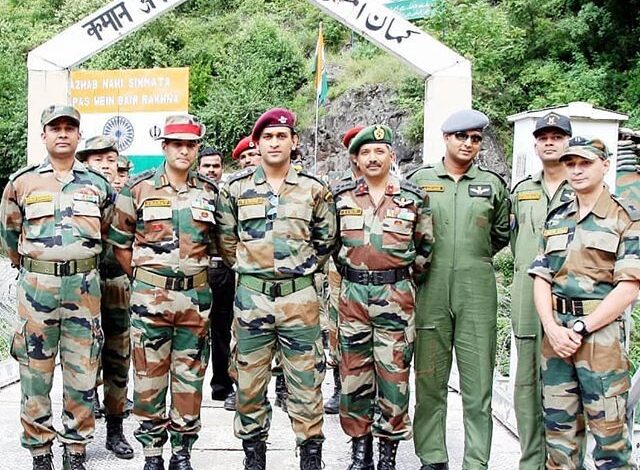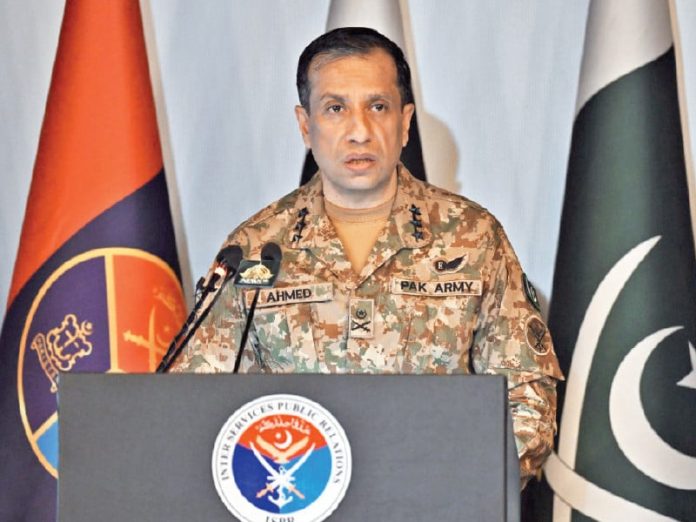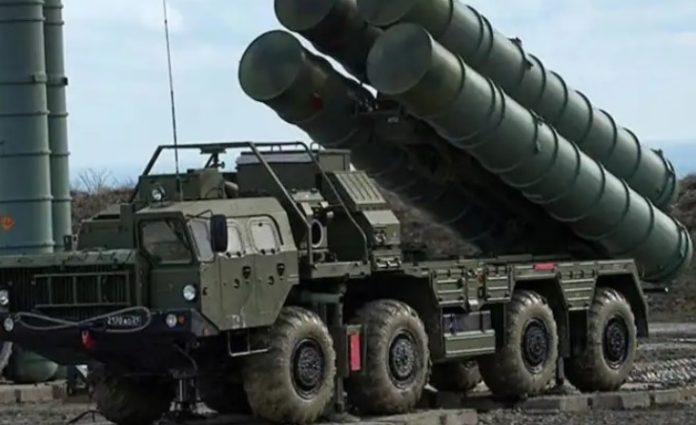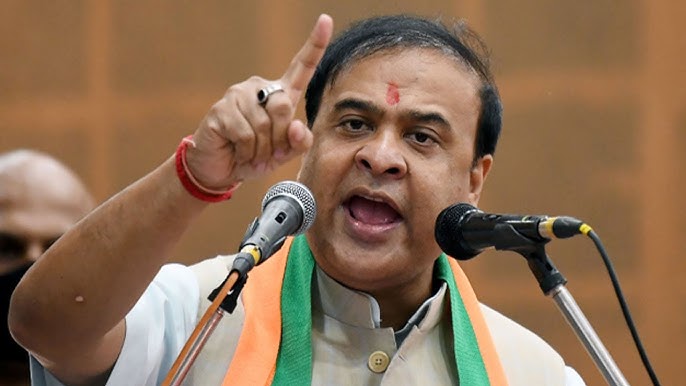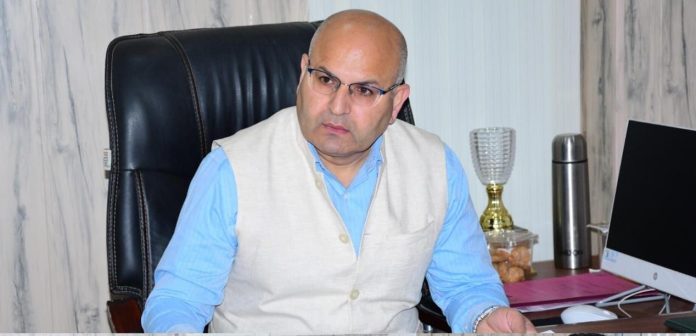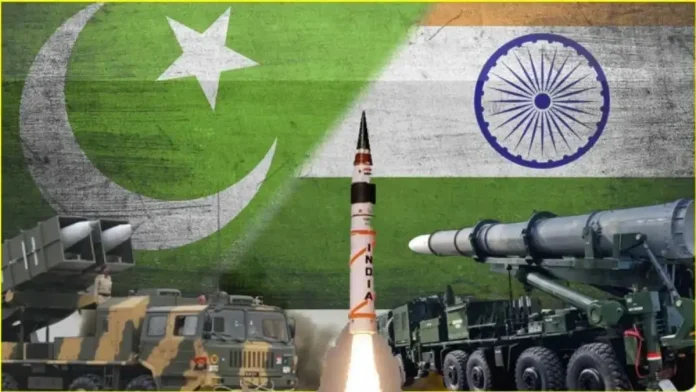Blasts, Blackout, and Loss: Jammu Bears the Brunt of Escalating Cross-Border Tensions
Intense shelling and multiple explosions shook Jammu city early Saturday morning, as the already strained relations between India and Pakistan took a sharp turn for the worse. The civilian population woke up to chaos, damage, and fear, with a complete power outage compounding the uncertainty.
In the early hours around 4:30 am, residents reported hearing several powerful blasts, followed by a total blackout across major parts of Jammu. Visuals from Udhampur’s Dibber area, shared by local media, showed thick smoke rising in the distance while emergency sirens pierced the air.
One of the most severe outcomes of the attack was the tragic death of Raj Kumar Thappa, the Additional District Development Commissioner of Rajouri. His official residence was directly hit by Pakistani shelling. Chief Minister Omar Abdullah expressed deep anguish over the loss, saying Thappa had joined him for a virtual government meeting just a day before. “This loss is personal and heartbreaking,” the Chief Minister remarked.
India Strikes Back Amid Shelling in Jammu
As explosions rang out across Jammu, Akhnoor, Uri, Hamirpur, and Pallanwala, Indian defence forces launched strong countermeasures. By 5 am, heavy artillery duels had begun in the Naushera sector. The Indian military reported engaging Pakistani forces with precision, targeting shelling positions and suspected drone launch sites near the Line of Control.
Civilian homes did not escape the devastation. Local resident Jitender Kumar Chadha described the horror of waking up to the sound of glass breaking and debris falling. “There was a huge blast. I was sleeping when it happened. All our windows shattered, and our vehicles were wrecked. It doesn’t matter what religion you follow these attacks hit everyone,” he said, surveying the damage to his home.
Defence sources confirmed that Indian forces swiftly acted against the origin points of the attacks. Pakistani drone launch pads and forward positions near Jammu were destroyed in targeted strikes. Indian air defence systems had already been placed on high alert prior to the attack and successfully intercepted several incoming threats.
Pakistan Shells Jammu After India Strikes on Terror Camps
The current escalation follows retaliatory airstrikes launched by India on May 7, which targeted terror infrastructure and military installations across the border in response to the deadly Pahalgam attack on April 22. Pakistan’s shelling of civilian areas in Jammu is viewed as a provocative response to those earlier strikes.
With tensions peaking, large areas of Jammu remain on high alert. Surface-to-air missile systems are fully deployed, while ground forces continue to monitor the border for any further signs of aggression. Residents, meanwhile, are left to recover from the trauma of a night that brought back memories of earlier conflicts—and the worry that more could follow.
UP Women Get 1% Stamp Duty Cut: योगी सरकार का महिलाओं को बड़ा तोहफा, 1 करोड़ रुपये तक की रजिस्ट्री पर मिलेगी स्टांप ड्यूटी में छूट
UP Women Get 1% Stamp Duty Cut: उत्तर प्रदेश की योगी सरकार ने महिलाओं के हित में बड़ा फैसला लेने की तैयारी कर ली है। अब महिलाओं को ₹1 करोड़ रुपये तक की संपत्ति की रजिस्ट्री पर 1 प्रतिशत स्टांप ड्यूटी की छूट मिलने का रास्ता साफ हो सकता है। अभी तक यह छूट सिर्फ ₹10 लाख तक की रजिस्ट्री पर ही मिलती थी। मुख्यमंत्री योगी आदित्यनाथ ने इसे बढ़ाने के निर्देश दिए हैं। Stamp Duty Relief for UP Women
1% Duty Off for Women in UP: महिलाओं की आर्थिक भागीदारी बढ़ाने की पहल
मुख्यमंत्री योगी आदित्यनाथ ने स्टांप एवं निबंधन विभाग की समीक्षा बैठक में कहा कि यह छूट महिलाओं को सशक्त बनाएगी और उनकी आर्थिक भागीदारी (Women Empowerment, Property Registration) को बढ़ाएगी। इससे ज्यादा से ज्यादा महिलाएं संपत्ति की मालिक बन सकेंगी।
UP: Women Save on Property Deals: भूमि विवाद कम होंगे, दस्तावेजों की पहले होगी जांच
मुख्यमंत्री ने कहा कि रजिस्ट्री प्रक्रिया से पहले भूमि स्वामी और दस्तावेजों का वेरिफिकेशन (Land Ownership Verification) अनिवार्य किया जाए। इससे फर्जीवाड़ा रुकेगा और भूमि विवादों (Land Disputes) में भी कमी आएगी। योगी ने अधिकारियों को निर्देश दिया कि रजिस्ट्री की प्रक्रिया को आसान और पारदर्शी बनाया जाए। तकनीकी माध्यमों का अधिकतम उपयोग (Digital Registration Process) करने पर बल दिया गया है, जिससे समय और संसाधनों की बचत हो सके।
सर्किल रेट में लानी होगी समानता
मुख्यमंत्री ने कहा कि समान परिस्थितियों वाले इलाकों में सर्किल रेट (Circle Rate Revision) में भी समानता होनी चाहिए। सर्किल रेट तय करते समय क्षेत्र के विकास, शहरीकरण और आधारभूत ढांचे को ध्यान में रखा जाए ताकि लोगों को सीधा फायदा मिल सके। अधिकारियों ने जानकारी दी कि राज्य के 45 जिलों में सर्किल रेट का पुनरीक्षण पूरा हो चुका है और शेष 30 जिलों में प्रक्रिया चल रही है।
पैतृक संपत्ति के बंटवारे पर भी राहत
मुख्यमंत्री ने कहा कि जब कोई व्यक्ति अपनी पैतृक अचल संपत्ति (Ancestral Property Partition) को जीवित रहते हुए अपने परिवार में – अपने और अपने तीन पीढ़ियों के वंशजों के बीच बांटता है, तो इस पर अधिकतम ₹5,000 स्टांप शुल्क ही लिया जाए। रजिस्ट्रेशन फीस भी अधिकतम ₹5,000 ही होनी चाहिए। इससे पारिवारिक विवादों में कमी आएगी।
रजिस्ट्री ऑफिस होंगे हाईटेक और पारदर्शी
मुख्यमंत्री ने सभी जिलों में रजिस्ट्री कार्यालयों के आधारभूत ढांचे को बेहतर बनाने (Infrastructure Upgrade) के निर्देश दिए। सभी दफ्तरों में सीसीटीवी कैमरे (CCTV surveillance) चालू रखने को कहा गया है। साथ ही, हर कार्यालय में पर्याप्त स्टाफ की उपलब्धता सुनिश्चित करने की बात भी कही।
रजिस्ट्री से जुड़ी सुविधाएं होंगी पूरी तरह ऑनलाइन
अधिकारियों ने बताया कि अब विभाग की कई सेवाएं ऑनलाइन उपलब्ध हैं, जैसे: स्टांप का ऑनलाइन सृजन, संपत्ति के भारमुक्त प्रमाण पत्र, कृषि बंधक विलेखों की ई-फाइलिंग, निबंधन शुल्क का ई-भुगतान, डिजिलॉकर में विवाह पंजीकरण प्रमाण पत्र। मुख्यमंत्री ने कहा कि भविष्य में रजिस्ट्री से जुड़ी सभी सेवाएं पूरी तरह ऑनलाइन (Online Land Registration UP) कर दी जाएं ताकि आम जनता को ऑफिस के चक्कर न लगाने पड़ें। योगी सरकार का यह कदम न सिर्फ महिलाओं के हक को मजबूत करेगा, बल्कि रजिस्ट्री से जुड़े भ्रष्टाचार और विवादों को भी कम करेगा। अब उम्मीद की जा रही है कि जल्द ही यह प्रस्ताव अमल में लाया जाएगा और महिलाओं को रजिस्ट्री में बड़ा फायदा मिलेगा।
India to mobilise Territorial Army amid tensions with Pakistan: What is Territorial Army? Which Indian celebrities are a part of it?
India’s Defence Ministry has granted the Army Chief the authority to mobilise the Territorial Army (TA) also known as ‘Terriers’ amid escalating tensions with Pakistan following the Pahalgam terror attack of April 22. A notification issued on May 6 as per the Rule 33 of the Territorial Army Rules, 1948, the government of India has authorised the Army Chief to call every officer and enrolled personnel of the Territorial Army as needed, either for guard duties or for full embodiment to support and supplement the regular armed forces.
“In exercise of the powers conferred by Rule 33 of the Territorial Army Rule 1948, the Central Government empowers Chief of the Army Staff to exercise the powers under that rule to call out every officer and every enrolled person of the Territorial Army to provide for essential guard or to be embodied for the purpose of supporting or supplementing the regular army,” a circular issued by the Ministry of Defence read.
What is Territorial Army?
The Territorial Army, known for its role as a secondary force to the regular Army, comprises volunteers who receive military training for national emergencies and internal security duties.
Civilians can apply to become Territorial Army officers. The eligibility conditions include Indian citizenship, age range between 18 and 42 years, graduation from any recognised university, physically and mentally fit, and gainfully employed. However, serving members of the regular armed forces and not eligible to apply as officers in the Territorial Army.
However, while serving in the Territorial Army can provide valuable skills and experiences, it is not typically considered a full-time job in the traditional sense, as it does not provide a consistent salary or benefits.
Which Indian Celebrities are a part of the Territorial Army?
Prominent personalities such as Malayalam actor Mohanlal, Bollywood actor Nana Patekar, Indian cricketers Kapil Dev, Sachin Tendulkar and MS Dhoni, Iconic Indian shooter Abhinav Bindra, and politicians Anurag Thakur and Sachin Pilot hold honorary or active positions in the TA.
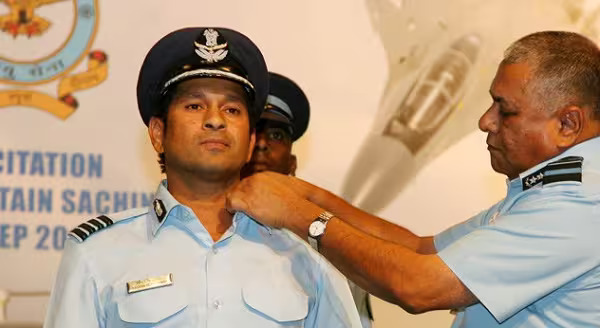
History of India’s Territorial Army
The Territorial Army was inaugurated by India’s first Governor General C Rajagopalachari on October 9, 1949. This day is celebrated as ‘Territorial Army Day’ every year in honour of the ‘Citizens Army’.
The Territorial Army began with multiple units such as Infantry Battalion, Air Defence, Medical Regiment, Engineers Field Park Company, Signal Regiment, etc. However, these units were disbanded or converted into the regular army by 1972, except for Infantry Battalion.
There are 32 Infantry Battalions of the Territorial Army. Of this, 14 Infantry Battalions or approximately 14,000 soldiers can be deployed in areas under the Southern Command, Eastern Command, Western Command, Central Command, Northern Command, South Western Command, Andaman and Nicobar Command, and Army Training Command.
Currently, Territorial Army is a part of the regular army and provides units for the Indian Army as and when needed.
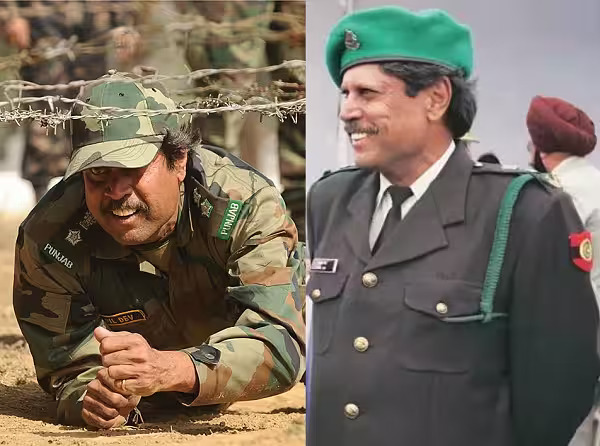
When was Territorial Army used in the past?
Territorial Army units have been part of operations in 1962, 1965, and 1971. The Territorial Army also went to Sri Lanka during Operation Pawan, Punjab and Jammu and Kashmir during Operation Rakshak, and the north-east region during Operation Rhino and Operation Bajrang.
India neutralises multiple drones and missile attacks from Pakistan
On the night of May 8-9, India repelled a massive wave of over 50 drones launched by Pakistan in what appeared to be a coordinated attempt to target at least 15 Indian military installations. Major areas affected included Udhampur, Samba, Jammu, Akhnoor, Nagrota, and Pathankot, where the Indian Army responded with a massive counter-drone operation using advanced air defence systems like S-400 ‘Sudarshan Chakra’, L-70 guns, Zu-23mm, Schilka platforms, and counter-UAS equipment.
In a statement, the Defence Ministry mentioned, “The threats were swiftly neutralised using kinetic and non-kinetic capabilities”, and underscored that the country remains “fully prepared to defend its sovereignty and ensure the safety of its people”.
The Indian Armed Forces successfully neutralised Pakistan military’s attempts of a large-scale drone and missile attack on multiple Indian military installations across Northern and Western India during the night of May 7-8 and an Air Defence system at Lahore was neutralised.
The Pakistani attack followed India’s Operation Sindoor early on May 7, where Indian Military conducted missile strikes on nine locations in Pakistan and Pakistan-Occupied Kashmir (PoK). India stated that these strikes targeted terrorist infrastructure linked to groups like Lashkar-e-Taiba and Jaish-e-Mohammed, in retaliation for an April 22 terrorist attack in Pahalgam that killed 26 civilians.
Pakistan’s Terror Links Exposed: UN Tags DG ISPR’s Father as Global Threat
In a major blow to Pakistan’s international image, startling revelations have emerged linking the father of Pakistan Army’s spokesperson, the DG ISPR (Director General of Inter-Services Public Relations), to global terrorism. The senior figure, a former nuclear scientist, has been listed under the United Nations Security Council’s sanctions list for his alleged role in nuclear proliferation and connections with internationally proscribed terror networks.
According to credible international sources, the scientist aided clandestine transfers of sensitive nuclear technology to rogue states and non-state actors. His actions were flagged by UN watchdog agencies as “grave threats to international peace and non-proliferation efforts.” The inclusion of such a figure in the global terror list raises serious concerns about Pakistan’s internal vetting processes, especially at the highest levels of its military and scientific establishments.
Public Face, Private Shadows
What further complicates Pakistan’s diplomatic standing is the fact that his son currently serves as the official spokesperson of the Pakistan Army — the DG ISPR — and is a key figure in shaping Pakistan’s national and international military narratives. The irony is not lost on international observers: while Pakistan seeks to project a responsible state image, individuals with direct familial ties to globally sanctioned figures continue to occupy positions of influence.
Analysts now question whether this is merely a legacy issue or symptomatic of deep-rooted ideological affiliations within Pakistan’s defence and scientific elite. The controversy comes amid growing scrutiny of Pakistan’s military involvement in sheltering and promoting terror proxies under the guise of strategic depth.
Funeral of Terrorists Attended by Army Officials
Further denting Islamabad’s credibility are recent images and videos that surfaced online showing Pakistan Army officers and officials attending the funerals of slain terrorists. These individuals were eliminated during counter-terror operations along the LoC and in internal security crackdowns. Far from distancing themselves, military personnel were seen offering ceremonial tributes — an act interpreted globally as tacit state endorsement of terrorism.
Global Patience Wearing Thin
The revelations come at a time when Pakistan is under mounting diplomatic pressure to dismantle terror infrastructure operating from its soil. International forums, including the Financial Action Task Force (FATF) and UN-affiliated bodies, have repeatedly warned Islamabad about state complicity and support to terror elements targeting regional stability, particularly in India and Afghanistan.
With this latest revelation, Pakistan’s long-standing denials of supporting terror groups are once again being challenged, not just by neighbouring countries but by global governance institutions. The contradiction between Pakistan’s diplomatic posture and ground realities continues to erode its credibility in international forums.
India Pakistan War: भारत ने पाकिस्तान के 8 सैन्य ठिकानों पर हमला किया
India Pakistan War: मिसाइल और ड्रोन हमले नाकाम होने से हताश पाकिस्तानी सेना ने गुरुवार रातभर जम्मू-कश्मीर में नियंत्रण रेखा (एलओसी) के समीप नागरिक ठिकानों पर भारी गोलाबारी के बाद शुक्रवार को शाम होते बारामुला से भुज तक 26 शहरों में ड्रोन हमले किए। इस दौरान श्रीनगर एयरपोर्ट और अवंतीपुरा एयरबेस को निशाना बनाने की कोशिश हुई। भारत ने इन ड्रोन हमलों को एयर डिफेंस सिस्टम से नाकाम कर दिया। अधिकतर पाकिस्तानी ड्रोनों को मार गिराया गया। भारत के हमलों से बचने के लिए वह अपने एयर स्पेस को ढाल बना रहा है। भारत ने पाकिस्तान को जवाब देते हुए मुरीद, रफीक, चकलाला, रहीमयार एयरबेस को तबाह कर चुका है। सुक्कुर एयरबेस और चुनियां, पसरूर राडार साइट को भी ध्वस्त किया। सियालकोट का एविएशन बेस को भी सेना ने ध्वस्त किया।
India Pakistan War: LoC पर भी पाकिस्तान की नापाक हरकत
पाकिस्तान ड्रोन हमलों के साथ ही नौशेरा, पुंछ और कुपवाड़ा में नियंत्रण रेखा पर मोर्टार और गनों से न केवल नागरिक इलाकों को, बल्कि धार्मिक स्थलों को भी निशाना बना रहा है। भारतीय सेना इसका करारा जवाब दे रही है और पाकिस्तान की हर मिसाइल को हवा में ही मार गिराया गया है। राजस्थान के बाड़मेर में हाई अलर्ट जारी किया गया है। जिला कलेक्टर टीना डाबी ने सभी नागरिकों से घर में रहने की अपील की है। लोगों से बाजारों और सार्वजनिक जगहों पर से दूर रहने के लिए कहा गया है।
India Pakistan War: सेना ने जारी किया ऑपरेशन सिंदूर का वीडियो
OPERATION SINDOOR
Indian Army Pulverizes Terrorist Launchpads
As a response to Pakistan’s misadventures of attempted drone strikes on the night of 08 and 09 May 2025 in multiple cities of Jammu & Kashmir and Punjab, the #Indian Army conducted a coordinated fire assault on… pic.twitter.com/2i5xa3K7uk
— ADG PI – INDIAN ARMY (@adgpi) May 10, 2025
जम्मू कश्मीर में पाकिस्तान को धूल चटाने के लिए भारत ने ऑपरेशन सिंदूर शुरू किया है। इस ऑपरेशन के तहत पाकिस्तान पर कैसे जवाबी कार्रवाई की जा रही है, भारतीय सेना ने इसका वीडियो जारी किया है। जम्मू कश्मीर की डल झील में एक मिसाइल जैसा टुकड़ा मिला है। स्थानीय लोगों के अनुसार, श्रीनगर की मशहूर जगहों में शुमार डल झील में आज सुबह कुछ मिसाइल जैसी चीज गई और फिर जोरदार धमाका हुआ, जिससे आसपास का पूरा इलाका दहल गया। कुछ देर बाद पानी में से धुआं उठने लगा।
बठिंडा एयरबेस पर हमले की खबर झूठी
सोशल मीडिया पर बठिंडा एयरबेस पर हमले की खबर वायरल हो रही है। इस खबर में दावा किया जा रहा है कि बठिंडा एयरबेस को नष्ट कर दिया गया है। हालांकि, PIB ने फैक्ट चेक में इन दावों को झूठा बताया है। PIB फैक्ट चेक में कहा गया है कि बठिंडा एयरफील्ड पूरी तरह से ऑपरेशनल है।
Will break legs of those who support Pakistan: CM Himanta Biswa Sarma, 48 arrested in Assam
At least 48 people have been arrested from Assam for supporting Pakistan, with three being apprehended on Friday, May 9. Three persons named Arif Rehman and Abubin Meraz Uddin SK from Dhubri district and Nasim Uddin Laskar from Cachar, were arrested on Friday.
This comes amid escalating military tensions between India and Pakisgtan following the Pahalgam terror attack and India’s Operation Sindoor in retaliation to it.
“Update on crackdown against traitors for defending Pakistan on Indian soil. So far 48 anti-nationals have been arrested for their treachery,” Chief Minister Himanta Biswa Sarma posted on X.
Meanwhile, in a viral video on social media, the CM can be heard saying, “If anyone shares posts such as Pakistan Zindabad on social media, or found supporting Pakistan in any other way from the soil of Assam, we will thrash them and break their legs.”
Those arrested in Assam might face National Security Act (NSA)
Earlier this week, the chief minister had mentioned at a press conference in Guwahati that the National Security Act (NSA) will be applied to only some of the people arrested, but not on all. There will be categorisation of the arrested persons as some are habitual offenders, while some have done for publicity, Sarma explained.
“There is another category with left leanings who have done it for political reasons. A committee will take the decision on whom NSA will be imposed and it is not going to be a political decision,” he added.
Recently, AIUDF MLA Aminul Islam was arrested on sedition charges for allegedly defending Pakistan and its complicity in the Pahalgam terror attack.
GST is ‘God-Sent Tax’ to fund India’s security: CM Sarma’s jibe at Rahul Gandhi
Rafale jets and S-400 systems don’t just appear — they are built on the strength of our taxpayers.
That’s why GST was never a “Gabbar Singh Tax” — it’s a ‘God-Sent Tax’that unites India and funds its security, growth, and resilience.— Himanta Biswa Sarma (@himantabiswa) May 9, 2025



